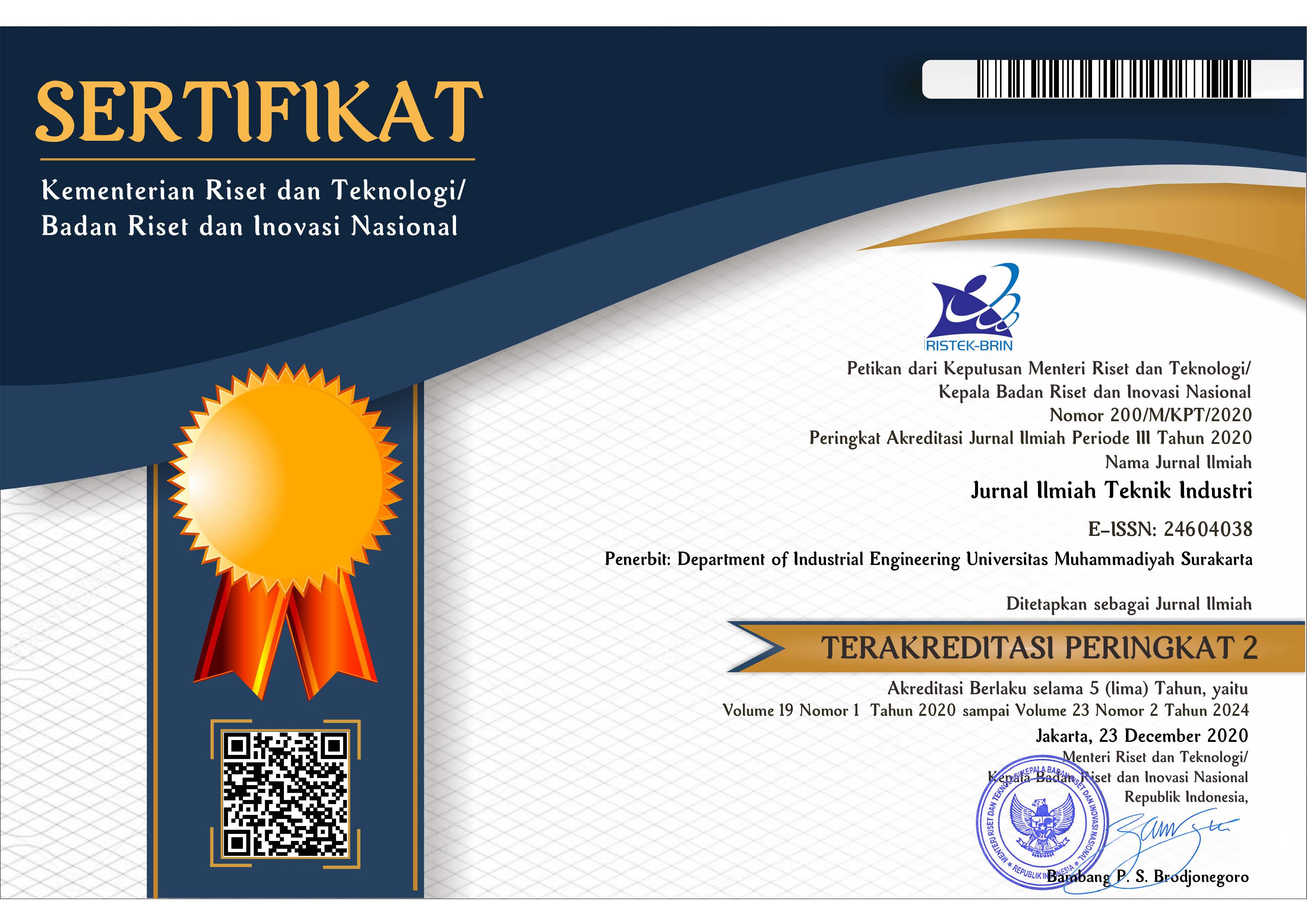Cardiovascular Load on Analyzing the Effect of Work Schedule among Intercity Travel Drivers’ Physical Workload in East Kalimantan
DOI:
https://doi.org/10.23917/jiti.v23i02.6490Keywords:
physical workload, working schedule, transportation, intercity travel service, cardiovascular loadAbstract
High physical workload is often closely related to fatigue, especially when exposed to tasks that require heavy, repetitive and long-duration physical activity. Fatigue has become a major factor in traffic accidents in the transportation sector. Data shows the increasing number of accidents by 6.2% from 2015 to 2022. This study aims to measure the physical workload of travel drivers at Kanguru Travel, an intercity automobile travel service in East Kalimantan. Work physiology approach is used with Cardiovascular Load (CVL) method. Meanwhile, data analysis uses the Kruskal-Wallis test. The study sample consisted of 21 drivers ranged between 30 – 65 years old. The results of the study showed that the night work schedule made a greater impact on physical workload than the morning and afternoon work schedules. However, drivers’ workload at Kanguru Travel falls under light category.
Downloads
Submitted
Accepted
Published
How to Cite
Issue
Section
License
Copyright (c) 2024 Jurnal Ilmiah Teknik Industri

This work is licensed under a Creative Commons Attribution 4.0 International License.











